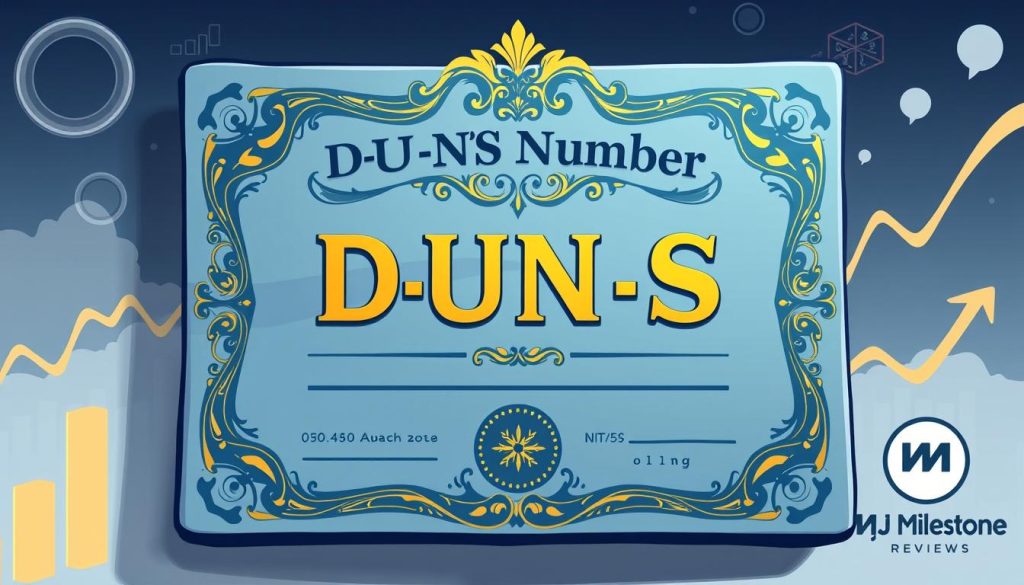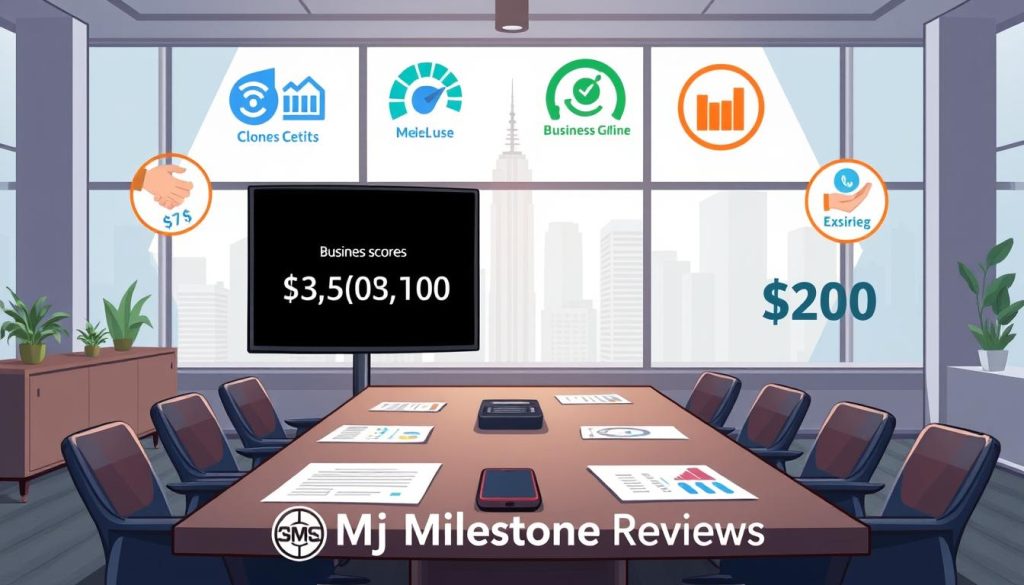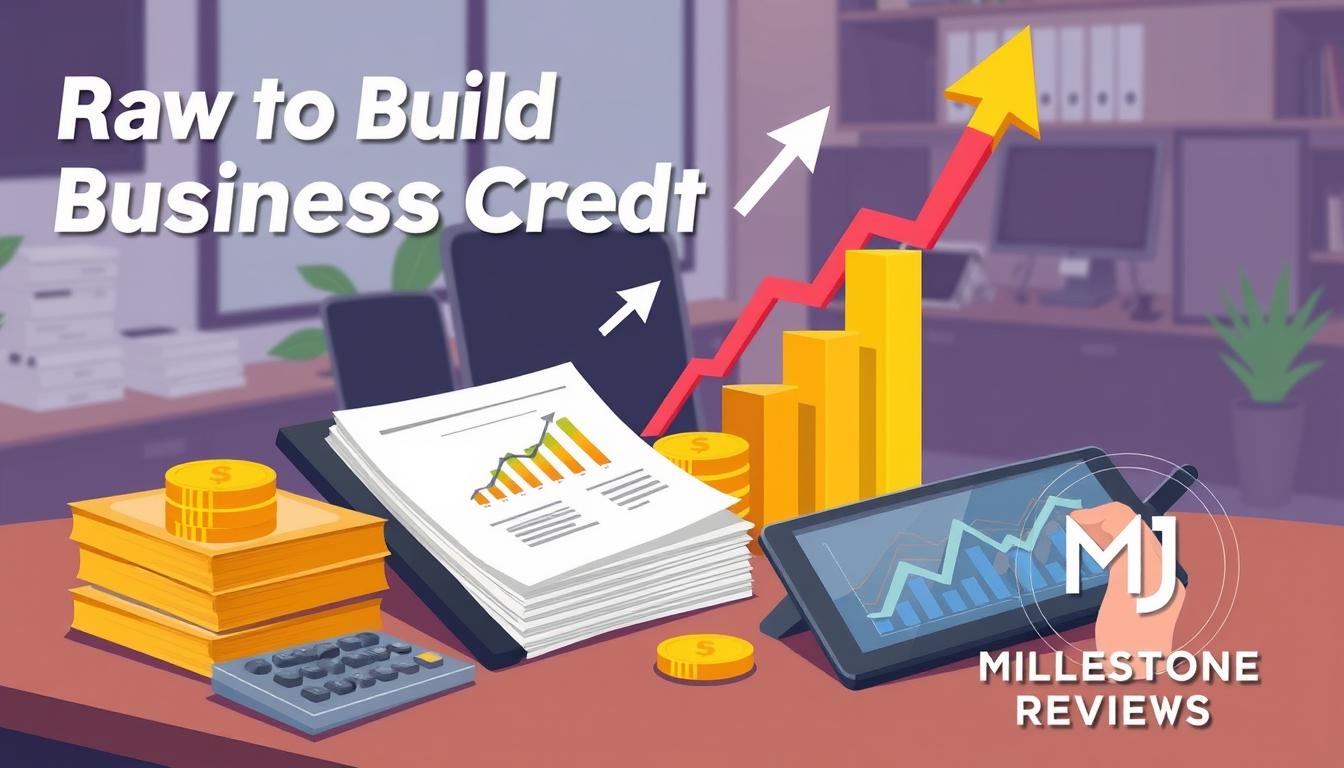Starting my own business was a dream for years. The journey from personal finances to business credit was tough at first. I remember the anxiety and sleepless nights, wondering how to build business credit fast.
Building business credit means gaining trust from lenders and others. My personal credit habits were key in this journey. I learned that improving my personal credit score helped my business look reliable and financially sound.
This guide will help you start your business credit journey. You’ll learn to register your business and get an EIN. You’ll also see how to separate personal and business finances.
Trade lines with suppliers and timely payments can greatly improve your score. Every step is important. You’ll understand how to make your business look financially strong.
Key Takeaways
- Understanding personal credit’s impact on business credit is essential.
- Registering your business as a separate legal entity sets a strong foundation.
- Obtaining an EIN is crucial for tax purposes and business credit.
- Separating business and personal finances enhances financial management.
- Establishing trade lines and timely payments help boost your business credit score.
- Monitoring your business credit profile regularly can help identify and rectify issues promptly.
- Choosing lenders that report to business credit bureaus is beneficial.
Understanding the Importance of Personal Credit
Before we dive into improving business credit, it’s key to understand personal credit scores. In the early stages of starting a business, your personal credit is crucial. It helps shape your business’s financial health.
How Personal Credit Affects Business Credit
Your personal credit scores can greatly impact your business credit. Lenders check your personal credit when considering business loans. A strong personal credit score can help get better loan terms and credit cards. This makes it easier to build credit for your business.
Personal Credit Scores Explained
Personal credit scores, like FICO® scores, range from 300 to 850. They are based on five main factors:
- Payment History: This makes up 35% of the score. Paying bills on time is key for a good score.
- Amounts Owed: This accounts for 30%. Keeping low credit utilization is important.
- Length of Credit History: This is 15%. Long-standing credit accounts are valued.
- Credit Mix: This is 10%. Having different types of credit is beneficial.
- New Credit: This is 10%. The number of new credit accounts matters.
Knowing these factors can help entrepreneurs build better credit. It supports both personal and business financial health.
Registering Your Business as a Separate Legal Entity
Creating your business as a separate legal entity, like an LLC, LLP, or corporation, is key. It keeps your personal money separate from your business. This lets your company use its own name for credit transactions.
Choosing the Right Business Structure
Picking the right business structure is important. It helps keep your personal and business money separate. Each type, like an LLC, LLP, or corporation, has its own benefits and rules. A sole proprietorship, however, mixes your personal and business money together.
When picking a structure, think about these points:
- LLC: Offers flexibility and less paperwork than a corporation. It also protects your money.
- LLP: Used by professional services. It protects partners well.
- Corporation: Gives the most protection but has more rules and paperwork.
This choice affects your business in many ways. It changes your tax duties and how profits are shared.
Registering Your LLC, LLP, or Corporation
Registering your business, whether an LLC, LLP, or corporation, follows state rules. You need to file forms with the state and pay fees. This step is key to making your business its own legal entity.
Here are the main steps:
- Choosing a unique business name: Make sure it’s not taken by another business in your state.
- Filing the required documentation: LLCs file Articles of Organization, while corporations file Articles of Incorporation.
- Designating a registered agent: This person or service handles legal papers for your business.
- Obtaining an EIN: A Federal Tax ID (EIN) is needed for tax returns, business bank accounts, and credit.
Registering your business formally helps keep your personal and business money separate. It affects your funding and credit management.
Obtaining an Employer Identification Number (EIN)
Getting an Employer Identification Number, or EIN, is key for new business owners. This nine-digit number is your company’s federal tax ID. It’s needed for opening a business bank account and applying for business credit.
Why an EIN is Essential
An EIN does more than just identify your business for taxes. It makes your business stand out as its own legal entity. This helps with better financial management and organized tax reporting.
Also, having an EIN is often required when you apply for business credit. This shows lenders that your company is creditworthy.
Without an EIN, getting the financial tools you need for growth can be hard. This includes corporate credit cards and business loans. Not having an EIN can also make it hard to open a business bank account. This makes it tough to keep your business and personal finances separate.
How to Apply for an EIN
Applying for an EIN is easy and can be done online through the IRS website. Here’s how:
- Visit the IRS website and go to the EIN application page.
- Make sure you have a valid Taxpayer Identification Number (TIN), like a Social Security Number (SSN) or Individual Taxpayer Identification Number (ITIN).
- Fill out the online application with your business and its main officer’s information.
- Submit your application and get your EIN right away after it’s validated.
The process is quick and efficient. Getting an EIN marks an important step in building your business’s credibility and independence.
Checking and Improving Your Personal Credit Score
Keeping an eye on your personal credit scores is vital for business owners. Good financial habits, like paying bills on time and using less credit, help improve scores. These habits are crucial for credit score improvement.
Your debt payment history is key, making up 35% of your FICO® Score. Paying bills on time greatly boosts your score. Also, using less of your available credit shows you manage credit well.
The length of your credit history is another 15% of your FICO® Score. This includes the age of your oldest account and the average age of all accounts. Having different types of credit accounts can also help, making up 10% of your score.
It’s also important to avoid too many hard inquiries in a short time. These can harm your score by 10%. Only apply for credit when you really need it to avoid negative effects.
Fixing any wrong information on your credit report is essential. Wrong data can hurt your score a lot. Also, being an authorized user on someone else’s credit card can quickly improve your score.
Improving your credit score builds a strong financial base for your business. Good personal credit scores can lead to better business financing. This helps your business grow and succeed.
Separating Business and Personal Finances
It’s crucial to keep personal and business money separate. This helps keep your finances in order and can improve your business’s chances of getting funding. By having a business bank account and clear financial rules, you show your business is real. It also makes sure your money is ready for audits and lender checks.
Opening a Business Bank Account
Getting a business bank account is a big first step. It makes managing money easier and keeps your records straight. It also helps build your business’s credit history, which lenders look at more than your personal credit.
Using business credit for loans can also boost your business credit score.
Maintaining Clear Financial Boundaries
It’s important to keep your business and personal money apart. This isn’t just for keeping records straight. It also protects your personal stuff and helps with taxes. Setting up an LLC and getting an EIN helps keep things separate and safe.
Using a business credit card makes tracking expenses easier. It also lets you deduct some costs and build your business credit on its own.
”Establishing separate business credit helps in securing loans, lines of credit, and financing, reducing personal financial risks.”
In short, keeping your finances separate is key for any entrepreneur. It helps build a strong and legal base for your business.
Applying for a D-U-N-S Number from Dun & Bradstreet

Getting a D-U-N-S number from Dun & Bradstreet is key for businesses. It helps build a strong credit profile. This number is vital for financial opportunities, like federal grants.
The Role of Dun & Bradstreet in Business Credit
Dun & Bradstreet is crucial in business credit. They give out D-U-N-S numbers. This lets lenders and others check your company’s financial health.
A D-U-N-S number is needed for a Dun & Bradstreet credit profile. This profile has scores for risk and creditworthiness. It’s important for government contracts and state funding.
Steps to Obtain a D-U-N-S Number
- Prepare Your Business Information: Gather details like legal name, address, and phone numbers. Also, include employee numbers and contact info.
- Visit Dun & Bradstreet’s Website: Go to Dun & Bradstreet’s site to find the application form.
- Complete the Application: Fill out the form with accurate business info. Make sure all details are correct for a smooth process.
- Submit the Application: Send the form online. It usually takes about two weeks to get a D-U-N-S number.
- Expedited Processing: For faster service, choose expedited for $229. This cuts the wait to about five days.
A D-U-N-S number helps when applying for federal grants. It also builds strong business credit. This number lets Dun & Bradstreet report payments accurately.
Having business credit through a D-U-N-S number opens up more financial chances. It can lead to better repayment terms and more opportunities.
Obtaining a Business Credit Card
Getting a business credit card is key for any company wanting to manage costs well and improve its financial standing. Using business credit cards wisely, like paying on time and keeping credit use low, boosts your company’s credit score. This is a strong base for future financial plans.
It’s also important to look into small business credit solutions. Many small businesses find that this first step helps with tracking expenses and building business credit. Companies like Credit Strong Business offer loans that report to Equifax Business and PayNet, helping your score.
“Making timely payments on business credit cards and other loans can significantly enhance the creditworthiness of your business. Regular and prudent use of credit establishes a reliable financial track record.” — Financial Analyst.
- eCredable Lift can link up to eight types of utility accounts and reports to business credit bureaus like Equifax and D&B.
- Suppliers like Uline and Quill report net-30 accounts to major bureaus such as D&B and Experian, helping build a robust credit history.
- Retail giants like Costco, Home Depot, and Staples offer net-30 accounts, further aiding small business credit solutions.
For fuel costs, gas stations and fleet fuel cards offer flexible options, possibly reporting to different credit bureaus. Taking advantage of these chances helps in building business credit. It also leads to better loan terms and a stronger financial position. Every smart use of business credit cards moves your business closer to financial stability.
Establishing Trade Lines with Vendors and Suppliers

Creating a strong business credit profile starts with trade lines. We’ll look at how to build these lines with vendors and suppliers. This will help boost your business credit score.
Finding Vendors That Report to Credit Bureaus
Finding vendors that report to credit bureaus is crucial. These reports are key to your business credit scores. Look for companies like Uline, Quill, and Grainger. They offer net-30 accounts and report to Experian, Dun & Bradstreet, and Equifax.
It’s important to pick vendors that fit your needs and report your payments. This ensures your credit history is accurate.
“D&B requires at least two tradelines and three trade experiences before a business is scorable.”
Building trade lines is important. It records your on-time payments, which helps improve your scores. Watch out for vendors like Summa Office Supplies and Amazon’s Pay By Invoice program. They offer supplies and report to major credit agencies.
Setting Up Trade Credit Relationships
Setting up trade credit relationships is more than just opening accounts. It’s about managing these relationships well. Here are some tips:
- Register with Vendors: Many vendors need you to register before offering credit terms.
- Meet Minimum Purchase Requirements: Make sure you meet any minimum order or purchase amounts for credit reporting.
- Build Payment History: Pay on time to build a positive payment history. This is key to your business credit score.
- Diversify Trade Lines: Work with different vendors in various sectors. This builds a strong credit profile.
Also, each vendor has its own reporting schedule and terms. Keep your credit reports from Experian, D&B, and Equifax up to date. This ensures accurate reporting and helps fix any errors quickly. In summary, managing trade lines well is essential. It boosts your business creditworthiness.
Making Timely Payments to Build Business Credit
Building a solid business credit profile starts with making timely payments. This habit keeps your relationship with vendors and lenders strong. It also boosts your business credit profile.
The Importance of On-Time and Early Payments
On-time and early payments are key to a better business credit profile. A good payment history can increase your Paydex scores. This shows creditors you’re reliable.
Timely payments are vital for keeping a good credit standing. They directly affect your business’s creditworthiness.
Impact of Payment History on Business Credit Scores
Your payment history greatly affects your business credit scores. Companies like Dun & Bradstreet use it to give Paydex scores. They reward those who pay on time.
A strong payment history opens doors to better credit opportunities. It also leads to better terms with lenders and vendors in the future.
Choosing Lenders That Report to Business Credit Bureaus

Getting funds for your business is key, but picking the right lender is just as important. The Federal Reserve says 43% of small businesses have looked for financing. Your lender choice can greatly affect your business credit with bureaus like Dun & Bradstreet, Experian, and Equifax.
Identifying Lenders Who Report Credit Activities
Business lenders that report to credit bureaus are vital for building your credit history. Not all lenders report, so finding those that do is crucial. D&B is the most used by lenders, so look for those that report to Dun & Bradstreet.
Reputable credit card issuers like Capital One, Bank of America, and American Express report to these bureaus. Business credit cards from Ramp, Nav, and Capital One are good choices. Vendors like Creative Analytics and Shirtsy also report, helping build your credit profile.
Evaluating Lender Terms Beyond Reporting
While finding lenders that report is key, don’t overlook other factors. Look at loan and credit terms beyond reporting. Small business funding options vary in interest rates, repayment terms, and fees.
Choosing a lender means more than just getting funds. It’s about matching your business goals and financial ability. Good credit can lead to better rates, higher loans, and more flexible terms. Always think about how these terms will impact your business’s health and growth.
By picking lenders and funding options that report and offer good terms, you can build a strong business credit profile. This ensures your business’s financial stability and growth potential.
Maintaining and Monitoring Your Business Credit Profile
It’s key to keep an eye on your business credit profile to keep your company’s finances healthy. Credit monitoring for businesses helps spot mistakes early and fix them fast. Since 79% of companies face business identity theft, being proactive can prevent big financial losses.
Good business credit analysis means checking reports from big names like Dun & Bradstreet, Experian, and Equifax. These reports might cost more than personal credit reports, but they’re worth it. For example, the Basic D&B Credit Insights plan costs $49 a month or $499 a year. It gives you essential business credit scores and ratings.
Experian’s Business Credit Advantage also offers yearly monitoring for $189. It gives detailed insights that are super helpful for your business.
Businesses with good credit can get better deals on loans or inventory financing. This helps their cash flow and operations. On the other hand, bad credit can come from not enough credit accounts reporting. This shows why it’s so important to watch your credit closely.
Free tools like Dun & Bradstreet’s CreditSignal are a good start. But, paid plans usually give more detailed info.
Business credit scores range from 1 to 100, unlike personal scores which go from 300 to 850. So, it’s crucial to regularly check your business credit profiles. By doing this, you protect your company’s financial reputation and get better deals from lenders and suppliers.
“Good business credit can help secure trade credit or inventory financing, and it is essential to maintain and monitor business credit reports from multiple major bureaus.”
BUSINESS CREDIT BUILDER: Improving Business Credit Scores
Improving your business credit score is more than just getting credit. It’s about taking smart steps to boost and keep your business’s financial standing. Let’s explore some effective strategies and common mistakes to watch out for.
Strategies to Improve Business Credit
To boost your business credit, using different tactics can help a lot. For instance, having various credit accounts can make a big difference. eCredable’s Business Lift can increase your scores by up to 40% in just 3 months. It reports to big bureaus like Dun & Bradstreet and Experian.
eCredable also helps by reporting on non-financial accounts from over 4000 companies. This helps business owners build a good payment history. With plans like Business Lift for $19.95 or Business Lift+ for $39.95, you can find what fits your needs. These services can greatly improve your scores over time.
Using an EIN to build credit is also smart. Credit Strong offers credit builder accounts with 0% interest. This lets companies build credit from $5,000 to $50,000. Having a solid financial foundation is key for better business credit.
Common Mistakes to Avoid
When trying to improve your business credit, it’s important to avoid common mistakes. Mixing personal and business funds is a big no-no. It makes your financial statements messy and hurts your credit score. Always keep your personal and business money separate.
Not checking your business credit reports regularly is another mistake. It can lead to errors that harm your scores. Regular checks help fix any issues fast and keep your credit in good shape.
Lastly, don’t rely only on personal credit or ignore reporting business accounts. Using services like MAGNUM from CreditStrong helps sole proprietors build business credit. It allows for building credit from $2,000 to $30,000 for business use.
Conclusion
Building personal credit and a strong business credit profile is key to success. Every step, from setting up your business to managing money, matters. It shows lenders, partners, and suppliers you’re reliable.
Timely payments and low credit use are vital. They boost your business credit and financial health. Checking your credit reports often helps fix mistakes and makes your business look good.
Building business credit takes time and effort. But with the right steps and tools, like a business credit builder, you can do it. This effort pays off with better financing and growth opportunities. Remember, building business credit is a journey that builds a strong future for your business.
FAQ
How does personal credit affect business credit?
What is an EIN and why is it essential for my business?
How can I choose the right business structure?
How do I apply for a D-U-N-S number from Dun & Bradstreet?
What are the benefits of opening a business bank account?
What are trade lines and how do they help build business credit?
How can obtaining a business credit card help my business credit?
Why is timely payment important for building business credit?
How do I monitor and maintain my business credit profile?
What strategies can improve my business credit score?
Source Links
- How to Get and Build Business Credit in 9 Steps
- How to Build Business Credit in 10 Simple Steps
- Business Credit vs. Personal Credit — What’s the Difference? | OnDeck
- Importance of Building Credit for Your Business
- Business Credit vs. Personal Credit: Key Differences Explained | Bluevine
- How to Build Business Credit Quickly: 5 Simple Steps
- How to Build Business Credit for an LLC | Nav
- How to Establish Business Credit for the First Time
- How To Get A Business Credit Card With An EIN Only | Bankrate
- Building Business Credit with EIN: Follow These 8 Steps
- How to Get a Business Credit Card With an EIN Only
- How to Improve Your Credit Score Fast
- How to Build Business Credit Without Using Personal Credit – Credit Strong
- How to increase your business credit score in 5 steps – Funding Circle
- Separate Your Personal and Business Credit | Find Out How |
- Separating Business and Personal Finances and Credit
- Why and How To Separate Your Business Finances | Nav
- Help! I’ve Got a D-U-N-S® Number, Now What? | Nav
- DUNS Number: What It Is and How to Get One – NerdWallet
- DUNS Number vs EIN: The Differences and How They Work | CreditStrong
- 12 Companies that Help Build Business Credit [50+ Point Score Increase!] – Credit Strong
- Secured Business Credit Cards to Build and Establish Credit
- Business Tradelines That Build Your Business Credit – Credit Strong
- 7 Best Vendors To Help Build Business Credit in 2024
- Business Tradelines: 5 Best Steps To Boost Credit
- 6 Shortcuts to Build Business Credit in 30 Days – Credit Strong 6 Shortcuts to Build Business Credit in 30 Days | Credit Strong
- How Long Does it Take to Build Business Credit? | eCredable
- Best Business Credit Cards That Report to D&B in 2024
- Companies That Help Build Business Credit: The Essential Guide
- Tillful Credit Builder 🛠️
- When to Use Business Credit Monitoring Services | Nav
- How To Check Your Business Credit Report | Bankrate
- How To Establish and Build Business Credit | Fast & Free Business Search | Experian
- Business Credit Builder
- CreditStrong Business – Get a Business Credit Builder Loan
- Business credit builder: The Importance of Business Credit for Small Businesses – FasterCapital
- Unlocking Success: The Importance of a Business Credit Builder
- Business Credit Builder: A Comprehensive Review of Top Credit Building Products




